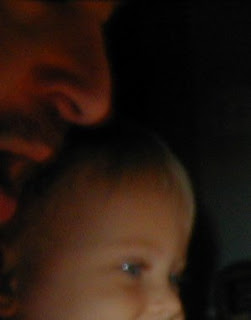A writer on one of the writers' groups I follow posted this link to the
100 Greatest Opening Lines for a novel. In some respect such lists are meaningless, but I am reading Huckleberry Finn to my 10 year old for his bedtime reading and this line appears as #12 of the "Greatest Opening Lines":
 "You don't know about me without you have read a book by the name of The Adventures of Tom Sawyer; but that ain't no matter." —Mark Twain, Adventures of Huckleberry Finn (1885)
"You don't know about me without you have read a book by the name of The Adventures of Tom Sawyer; but that ain't no matter." —Mark Twain, Adventures of Huckleberry Finn (1885)
This is the second child I've read aloud to from this, perhaps the most important American work of fiction by arguably the greatest American author. I tell him its for his erudition, but it's really for me. I maintain a "selfish selflessness" when it comes to reading to the boys. I only read works I love, so as best to communicate my enthusiasm for the work and for reading in general. Huckleberry Finn is perhaps my favorite novel of all time. Such a ripping adventure yarn, so simply written, in such a compelling voice on so many complex subjects. Racism, slavery, morality, identity, personal loyalty, the relationships of fathers and sons ... layers and layers, on and on.
That said, imho, the line is only memorable because the book is so damned good. But does that make it great? I always thought the line was a bit of a "throw-away," an understated device Twain used to quickly move readers from A to B. He gives permission to read Huck (his masterpiece) without having first read TS (his great work). Huck Finn is chockfull of amazing lines, all far more memorable than its first line.
How about this passage from Chapter 16, where we stopped last night:
Setup--Huck is bedeviled by his conscience, having had an opportunity to do the "right thing" and give Jim up. But for reasons he doesn't fully understand yet, he doesn't.
 "I knowed very well I had done wrong, and I see it warn't no use for me to try to learn to do right; a body that don't get started right when he's little ain't got no show -- when the pinch comes there ain't nothing to back him up and keep him to his work, and so he gets beat. Then I thought a minute, and says to myself, hold on; s'pose you'd a done right and give Jim up, would you felt better than what you do now? No, says I, I'd feel bad -- I'd feel just the same way I do now. Well, then, says I, what's the use you learning to do right when it's troublesome to do right and ain't no trouble to do wrong, and the wages is just the same? I was stuck. I couldn't answer that. So I reckoned I wouldn't bother no more about it, but after this always do whichever come handiest at the time. "
"I knowed very well I had done wrong, and I see it warn't no use for me to try to learn to do right; a body that don't get started right when he's little ain't got no show -- when the pinch comes there ain't nothing to back him up and keep him to his work, and so he gets beat. Then I thought a minute, and says to myself, hold on; s'pose you'd a done right and give Jim up, would you felt better than what you do now? No, says I, I'd feel bad -- I'd feel just the same way I do now. Well, then, says I, what's the use you learning to do right when it's troublesome to do right and ain't no trouble to do wrong, and the wages is just the same? I was stuck. I couldn't answer that. So I reckoned I wouldn't bother no more about it, but after this always do whichever come handiest at the time. "
What makes a great opening line? Is it the great poetic resonance that presages the story like a bolt of lightning? Is it how in a single brushstroke, it intros a memorable protagonist or sets the stage for the work's central conflict?
What virtue is inherent in a novel's first line that we as writers should study, know and emulate?
I always thought that the first lines of short stories were more "important" because of the economy of short stories v novels. Novels are about slow-cooking, delicate, complex nuanced flavors, while short stories offer sharper, faster brighter flavors but by necessity, less complexity. The short story format only allows you to hint at complexity, i.e., negative space, rather than develop it. In cooking, a good reduction, water is all that boils off. In a good short work or a good long work, there is no excess water. So, I'd argue that it's not possible to retain ALL the flavors of a long work in a short work, no matter how skilled or brutal an editor you are.
To wit, this link from Writer's Digest for those of us considering, editing or pulling our hairs out over a novel in progress. Some solid advice within, which I'm taking to heart:
My how I roam and ramble. Twain would have me set on a raft without a paddle.


